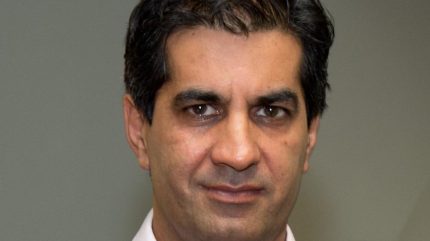
2 Sisters Food Group has warned of the consequences for consumers as the UK’s largest poultry supplier faces a “massive” hike in CO2 prices.
Owner Ranjit Singh Boparan has called on the government to act with some “urgency”, describing a pending CO2 shortage as a “national security issue”.

Discover B2B Marketing That Performs
Combine business intelligence and editorial excellence to reach engaged professionals across 36 leading media platforms.
Boparan conveyed “dismay and concern for consumers at [a] massive UK CO2 supplier ‘surcharge’ hike up to 20 times current levels”, which he says will cost 2 Sisters an extra GBP1m (US$1.1m) a week.
Consumers are already up against higher household costs, from food to energy and transport, with Boparan sounding an implicit warning of more pain ahead unless the Government takes action.
His cries come in the wake of last week’s announcement from US-headquartered CF Industries Holdings, the UK’s largest supplier of CO2, that it planned to temporarily close its remaining ammonia manufacturing facility in Billingham, Durham, in north-east England. Its subsidiary, CF Fertilisers UK, cited elevated global prices of natural gas and carbon for its decision.
Boparan, who was also vocal last year over a similar episode, said: “This is a price shock just like we’ve seen with energy and all companies and households are feeling the pain right now. What is very sad is that it’s the UK shopper who will ultimately pay the price and CO2 suppliers are, in effect, holding consumers hostage.”

US Tariffs are shifting - will you react or anticipate?
Don’t let policy changes catch you off guard. Stay proactive with real-time data and expert analysis.
By GlobalDataAmmonia is the first step in producing fertiliser, where CO2 is captured in the process. In food manufacturing, the gas is used to cull animals our poultry, in chilling and packaging foods, and in refrigeration systems.
Boparan, who also owns turkey supplier Bernard Matthews, added: “This is a very serious situation we are facing. Once again, UK food security is under threat and the shopper ultimately loses – we simply have no choice other than to pay to keep supply. C02 suppliers are saying these increases happen immediately. They say it’s a take it or leave it situation.
“My businesses are resilient, and we will navigate our way through this current CO2 crisis in partnership with our customers and suppliers. But make no mistake – negotiation is not an option here with the suppliers.”
A source told Just Food, asking not to be named, that CF Industries (CF Fertilisers) does not supply CO2 to UK food manufacturers directly. Instead, it sells through intermediaries, the largest of which is Nippon Gases, a UK unit of Japan’s Nippon Sanso Holdings.
CF Fertilisers also halted production at the Billingham plant last year, and another in the north-west of England at Ince, in Cheshire, again due to the high costs of energy inputs. However, the Cheshire plant was earmarked for closure in June with the potential loss of more than 200 jobs.
Approached by Just Food, a spokesperson for CF Industries said last week: “CF Fertilisers UK will resume production of ammonia and CO2 when it is economical to do so again”, clarifying that the Ince facility has not been operational since 2021 and is set for “decommissioning”.
The spokesperson added: “We notified the Government of our plans, but are not asking for support.”
The UK government stepped in last year, entering a subsidy deal with CF Industries, and Boparan is urging the authorities to do so again.
“This is clearly a national security issue and has to be dealt with as a matter of urgency. I’d like to see an acknowledgment of the problem and action to regulate the CO2 market, or at least consider price capping,” Boparan said.
He added: “I’d like to see CO2 supplies prioritised for the food sector so UK supply can be maintained and for the Government to support these fertiliser plants who are saying they’ve switched off because of the rising price of natural gas. It really beggars belief when such a key infrastructure operation can arbitrarily decide to switch off the taps because of price inflation. It is irresponsible and catastrophic for our sector.
“We can’t just down tools because of inflation. In my businesses, you have to roll up your sleeves as best you can and tackle it head-on. Giving up and saying ‘inflation is too high’ is not an option.”





